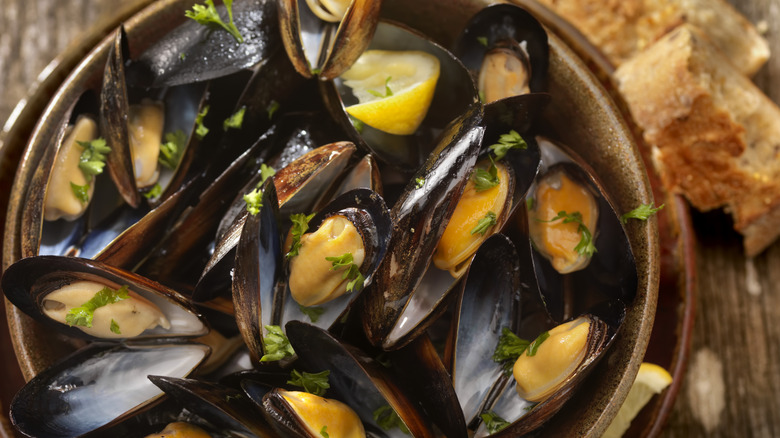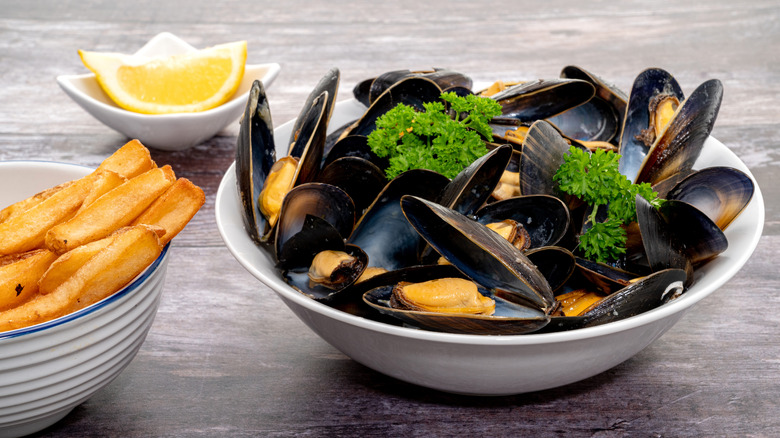The Rule About Not Eating Closed Mussels Is Actually Complicated
There is plenty of lore about how to cook mussels and when to eat them. One old wives' tale suggests that mussels and other mollusks can only be consumed during months spelled with the letter "R" in them (September to April). Another claims that mussels that don't pop open during the cooking process shouldn't be consumed because they are supposedly inedible from the start.
The first myth is believed to date back several centuries — long before the age of refrigeration and food testing — so it is believed to have caught on because it excludes the summer months when mussels, clams, and oysters could spoil in the heat. But the second myth involving mussels isn't as easy to explain, because while common food lore dictates that a closed mussel is a bad one, science says that not only is that untrue, but that contrary to popular belief, some open mussels also have the potential to cause trouble.
The discovery that turned unopened mussel lore on its head was made by food scientist Nick V. Ruello, who was commissioned by Seafood Services Australia in 2004 to set standards for mussels because so many were being wasted. The hope was that lower-quality mussels might be weeded out before they were sold, and both "standard" and "premium" mussels might be graded and priced accordingly.
Science says a closed mussel isn't necessarily bad
Experimentation shows that mussels generally close their shells when they are stressed — like when they are exposed to heat. So when they are being cooked, their shells don't usually pop open until the muscle that holds them together becomes weak, which means that mussels that stay closed aren't dead, and they aren't likely to cause any problems when the shells are pried apart. By contrast, the Seafood Services Australia study shows that the dead mussels we all worry about either already have open shells that don't shut, or split open as easily as live ones during the cooking process because the muscle holding the shell closed is limp. To make matters more confusing, Ruello found that in a few cases, even if some mussels aren't cooked properly, their shells pop open anyway. As a result, a closed mussel has the same chance of making you sick as an open one — which makes it imperative for you to smell your seafood to detect any bad odors before cooking them.
But what of the belief that closed mussels are bad for you, then? The credit for that goes to an English food writer named Jane Grigson who had warned consumers in the 1970s to ditch the mussels that refuse to open. Two decades later, her advice became common knowledge, and it wasn't until Ruello did his study that the advice was scientifically debunked.

